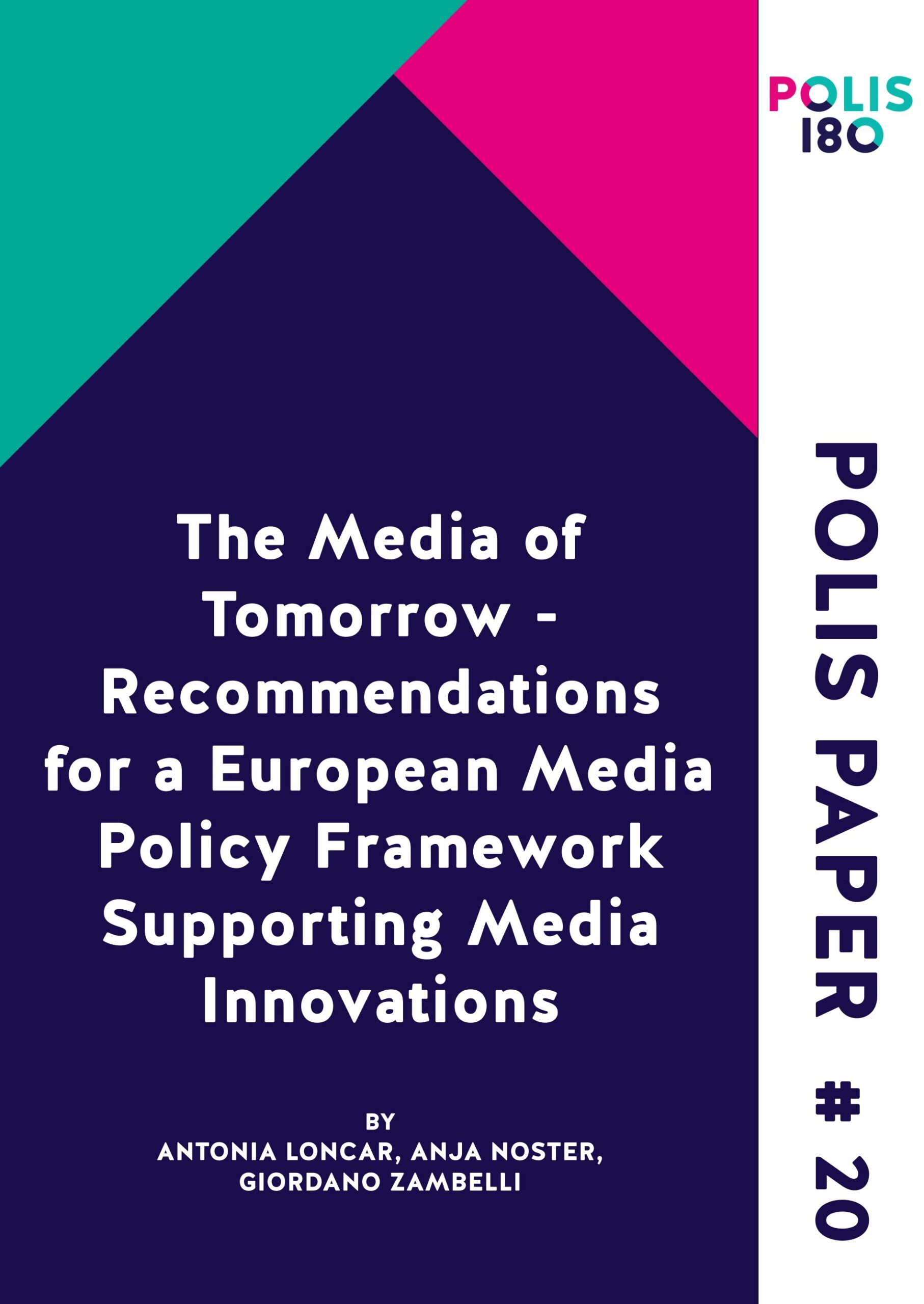This paper is part of a series of papers highlighting fields of innovation in the creative industries with political impact and how they can be supported politically.
They were created in the context of the project Digitizing Creative Industries, in which five innovation projects from Europe were supported in an accelerator program with mentoring, innovation workshops and networking.
In this series, our international authors from academia, innovation practice and journalism address the opportunities and challenges of creative value creation in the Web3 space, digital gig work in the creative sector, new forms of local journalism and its importance for a balanced media landscape in Eastern Europe, recommendations for a European policy framework to support media innovation, and cross-disciplinary collaboration using the example of educational innovation with extended reality technology.
Abstract
Innovation is usually associated with radical paradigmatic inventions that shake entire markets and sectors. The narrative of the solitary genius innovator has characterized much of the innovation talks of the last few decades, revolving around the expectation of disruptive technologies transforming the economy and society. However, innovation is rather often the result of complex, lengthy and iterative dynamics involving tech companies, but also common users, policymakers and actors from non-tech industries and sectors. This is especially valid for the news sector, where innovations are notoriously slow due to a business as usual logic in the face of digital transformation, as well as organizational and stakeholder roadblocks.
The goal of this policy paper is to analyze these challenges and review support schemes across the EU that might help media startups as well as legacy media to overcome them. A concrete example will be described, to illustrate the complexity of these dynamics. We will consider the case of The Newsroom, a Portuguese startup supported by this year’s Digitizing Creative Industries Programme from German Think Thank Polis180 and the German Foreign Office.
The paper concludes on a set of recommendations regarding what media regulators can do to support news media’s innovation processes and their adaptation to a changing media environment.
By Antonia Loncar, Anja Noster, Giordano Zambelli
December 2022
Antonia Loncar is a seasoned communication professional with 13 years of experience in EU communications and project management. Her experience includes work with the European Commission where she helped create and manage communications of COSME, the leading EU Programme for SMEs, and the EU Intellectual Property Office where she worked on EU projects in third countries. She is currently working with Fondation EURACTIV’s MediaLab where she helps define advocacy strategies focused on the media across the EU. Antonia holds a Bachelor’s Degree in Communications and Masters’ Degree in International Cooperation from Sapienza University of Rome and is currently pursuing a PhD in International Relations at University of Zadar and LIBERTAS Business school.
Anja Noster is a research associate and PhD candidate at Bauhaus University in Weimar, Germany. Her research focuses on innovation policies in digital journalism and is funded by the German Ministry for Education and Research. Prior to her academic work, she held executive roles in partnerships and growth management at German MediaTech startups ada and Opinary. She has also worked at the German trade association Bitkom, Airbnb and various French and German newspapers. Anja holds a Bachelor’s in political science from Sciences Po Paris and a Double-Master’s in Global Media and Communications from the London School of Economics and Fudan University in Shanghai.
Giordano Zambelli is a PhD candidate at SMIT-VUB, Brussels. His research focuses on media innovation processes in media companies, specifically looking at the role of intra-firm and inter-firm collaborative practices for innovation in journalism. On top of that, since 2020, he is involved in the coordination of the media innovation scheme Stars4Media, supported by the European Commission. Before working on media innovation, he obtained a BA/MA in Philosophy from University of Milan, after which he worked for four years as a communication and advertising consultant. Between 2018 and 2019, he completed a MSc in Communication Sciences at the VUB.
